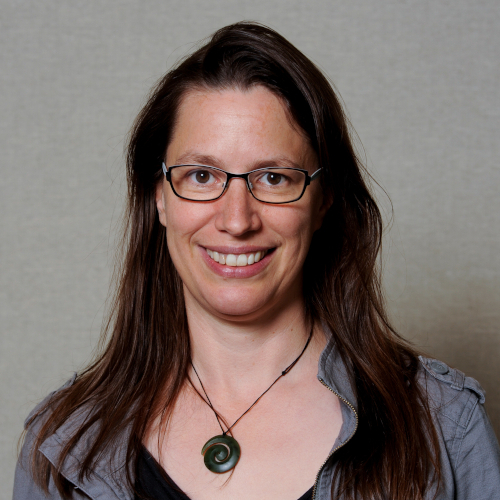Karen Daniels
Professor
- Phone: 919-513-7921
- Email: kdaniel@ncsu.edu
- Office: 258C Riddick
- Website: https://danielslab.physics.ncsu.edu
Publications
- Current CV
- ORCID
- Link to Full Text of All Publications from NCSU Scholarly Publications Repository
- Google Scholar
- Downloadable datasets from Dryad
- arXiv preprints
Professional History
- A.B. Physics Dartmouth College, 1994
- Science Teacher, St. Ann’s School, Brooklyn, NY, 1994-1997
- Ph.D. Physics Cornell University, 2002
- Postdoc Duke University, 2002-2005
- Asst-Assoc-Full Professor of Physics, NCSU, 2005-2021
- Distinguished Professor of Physics, NCSU, 2021-present
Other Appointments
- Visiting Scientist, Department of Complex Fluids, Max Planck Institute for Dynamics and Self-Organization, Göttingen, Germany, 2011-2012
- Divisional Associate Editor, Physical Review Letters, 2017-present
Awards
- NSF Faculty Early Career Development (CAREER) Award, 2007
- Alexander von Humboldt Fellowship, 2011
- LeRoy and Elva Martin Award for Teaching Excellence, 2013
- North Carolina State University Faculty Scholar, 2013
- Equity for Women Award, North Carolina State University, 2015
- Outstanding Referee, Physical Review Letters, 2017
- Fellow of the American Physical Society, 2018
- Fellow of the American Association for the Advancement of Science, 2021
Karen Daniels is a Distinguished Professor of Physics at NC State University. She received her BA in Physics from Dartmouth College in 1994, taught school for a few years, and then pursued a PhD in Physics at Cornell University. After receiving her doctorate in 2002, she moved to North Carolina to do research at Duke University and then joined the faculty at NC State in 2005. Her lab at NC State investigates a number of problems in the deformation and failure of materials, from fluid flows, to piles of sand, to fracturing gels. When not working with her students on experiments in the lab, she likes to spend time in the outdoors, which has led her to contemplate the implications of her research for geological and ecological systems. In 2011-2012, she received an Alexander von Humboldt fellowship which allowed her to spend the year conducting research in Göttingen, Germany.
- Physics Department Complex Matter and Biophysics Seminar
- Triangle Soft Matter Workshop
- APS Soft Matter :: Fluid Dynamics :: Statistical and Nonlinear Physics
- Soft Matter mailing list (lots of job postings for PhD/postdoc positions)
- NSCU NCSU Inclusive Excellence and Strategic Practice
- APS Communication and Negotiation Skills Seminar for Women
- Humans of Soft Matter mailing list for marginalized faculty in soft condensed matter physics
- py-women mailing list for women at NC State Physics
- National Society of Black Physicists, NCSU Chapter (faculty advisor)
- Women in Physics at NC State student organization (faculty advisor)
- GLBT Ally/Advocate Program (member)
- APS Inclusion, Diversity, and Equity Alliance (member, NCSU team)
- Women in Physics at NC State student organization (faculty advisor)
- Unlearning Racism in Geoscience
Publications
- Dilatancy and its coupling to the kinematics in sheared granular media
- Vatsa, G., Fazelpour, F., Gautam, R., Daniels, K. E., & Nott, P. R. (2025), Journal of Fluid Mechanics. https://doi.org/10.1017/jfm.2024.1230
- Soft matter physics of the ground beneath our feet
- Voigtlaender, A., Houssais, M., Bacik, K. A., Bourg, I. C., Burton, J. C., Daniels, K. E., … Yang, J. Q. (2024, July 16), SOFT MATTER. https://doi.org/10.1039/D4SM00391H
- The Role of Electrochemical Oxidation on the Interfacial Tension of Eutectic Gallium Indium
- Rashid-Nadimi, S., Okatenko, V., Song, M., Shetty, Y., Bachmann, A. L., Mehrabian, N., … Dickey, M. D. (2025), ACS Electrochemistry. https://doi.org/10.1021/acselectrochem.4c00088
- Using Network Science to Evaluate Vulnerability of Landslides on Big Sur Coast, California, USA
- Desai, V. D., Handwerger, A. L., & Daniels, K. E. (2024, August 29). , . https://doi.org/10.22541/essoar.172494370.04413277/v1
- Controlling rheology via boundary conditions in dense granular flows
- Fazelpour, F., & Daniels, K. E. (2023, February 17), SOFT MATTER. https://doi.org/10.1039/D2SM00683A
- Data from: Controlling rheology via boundary conditions in dense granular flows
- Daniels, K. E., & Fazelpour, F. (2023), Dryad. https://doi.org/10.5061/DRYAD.866T1G1V8
- Data from: Forecasting landslides using community detection on geophysical satellite data
- Desai, V. D., Fazelpour, F., Handwerger, A. L., & Daniels, K. E. (2023). , . https://doi.org/10.5061/DRYAD.41NS1RNJF
- Forecasting landslides using community detection on geophysical satellite data
- Desai, V. D., Fazelpour, F., Handwerger, A. L., & Daniels, K. E. (2023), Physical Review E, 108(1). https://doi.org/10.1103/PhysRevE.108.014901
- Interfacial Tension Hysteresis of Eutectic Gallium-Indium
- Hillaire, K. D., Nithyanandam, P., Song, M., Nadimi, S. R., Kiani, A., Dickey, M. D., & Daniels, K. E. (2023, December 14), ADVANCED FUNCTIONAL MATERIALS, Vol. 12. https://doi.org/10.1002/adfm.202311501
- Data from: Gardner-like crossover from variable to persistent force contacts in granular crystals
- , [Data set]. (2022). Dryad. https://doi.org/10.5061/dryad.kd51c5b97
